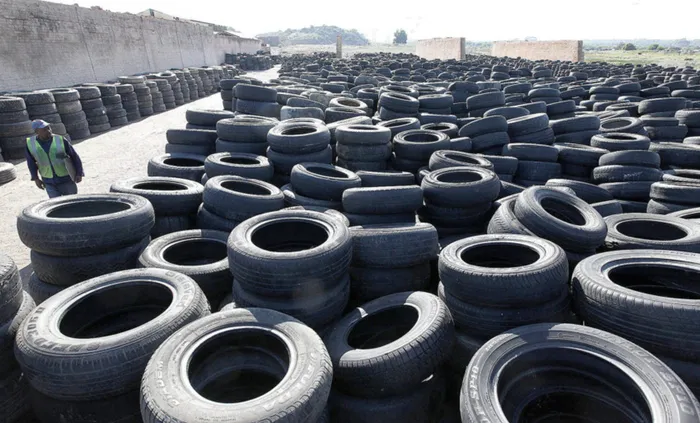Goodyear's plant closure and job losses raise concerns over SA's macroeconomic policy
MANUFACTURING

In a statement on Monday to the Business Report Goodyear South Africa confirmed that they would be undergoing a restructuring at their Uitehage manufacturing plant in Eastern Cape.
Image: Jason Boud
The announcement of Goodyear South Africa's impending closure of its tyre manufacturing plant in Kariega after 78 years of operation has stirred a myriad of concerns regarding the nation's macroeconomic policy and its capacity to lure and sustain investments.
Goodyear South Africa on Monday confirmed that they would be undergoing a restructuring at their plant and that this would affect more than 900 jobs, coming as the manufacturing sector's output in the country has been dwindling. The National Union of Metalworkers of South Africa (Numsa) also confirmed on Friday that it had received a section 189 notice from Goodyear.
The tyre manufacturing giant said it was transforming its go-to-market strategy in the Europe, Middle East & Africa region to optimise its footprint and portfolio.
“As part of that transformation, Goodyear South Africa is launching a restructuring process in accordance with the provisions of the Labour Relations Act to address proposals regarding the closure of its manufacturing facility in South Africa and the realignment of certain sales, administration and general management (SAG) functions. Goodyear South Africa will continue to maintain a sales and distribution, and HiQ retail presence in South Africa,” it said.
“The process will be facilitated by the CCMA, and Goodyear will engage in it with transparency and fairness, ensuring that the dignity and interests of all those potentially impacted by the process are appropriately safeguarded. As a company, we recognise our responsibilities towards our employees and their families and are firmly committed to acting fairly and providing them with appropriate support.”
Meanwhile, the National Automobile Dealers’ Association (NADA) on Monday said it recognized that Goodyear's decision to discontinue manufacturing operations in Kariega was a difficult one made as part of a broader global restructuring.
NADA added that with South Africa already facing high unemployment, the potential loss of hundreds of jobs is deeply concerning for the automotive ecosystem and the broader economy.
“Our thoughts are with the employees, families and communities who may be affected by this change,” NADA said.
“This development underscores the importance of creating a supportive environment to sustain industrial operations and employment in the country.”
However, Efficient Group chief economist Dawie Roodt placed the blame sqaurely at the doorstep of the government policy direction, saying the pattern of disvestment had been observed in the last couple of years.
“South Africa is in a process of deindustrializing, which means we are losing our factories and investments. The reason for this is that we have the wrong macroeconomic policies and I know trade unions are going to be concerned about this,” Roodt said.
“Unfortunately that is part of the problem: organised labour in South Africa is too strong and they get too much legislative protection.”
Roodt said the government was implementing wrong macroeconomic policies and that were leading to job losses.
“Untill we change these policies these trends that have become apparent for a number of years will continue. It's really disappointing for the workers and for the South African economy.”
Waldo Krugell, an economics professor at the North-West University, said globalisation
“It is caused by a combination of cheap import competition from China and the local supply side issues facing manufacturing. The loss of jobs will hit the local community hard. It also spills over into the staff of support industries, security, and cleaning,” he said.
Krugell said the government can perhaps try to levy tariffs on imported tyres and make South African tyre manufacturing great again.
“That is relatively easy to do, and we have been doing it with little success. Or we can try to fix the supply side to make local manufacturing more competitive. That is relatively difficult, but we have been talking about it quite a bit,” he said.
However, Krugell said this was a double-edged sword as the bit that was frequently missed when arguing for protection of local jobs was that consumers pay for it.
“And when the protected product is an input in someone else’s production process, it adds to the cost of doing business and makes the next sector uncompetitive.”
BUSINESS REPORT